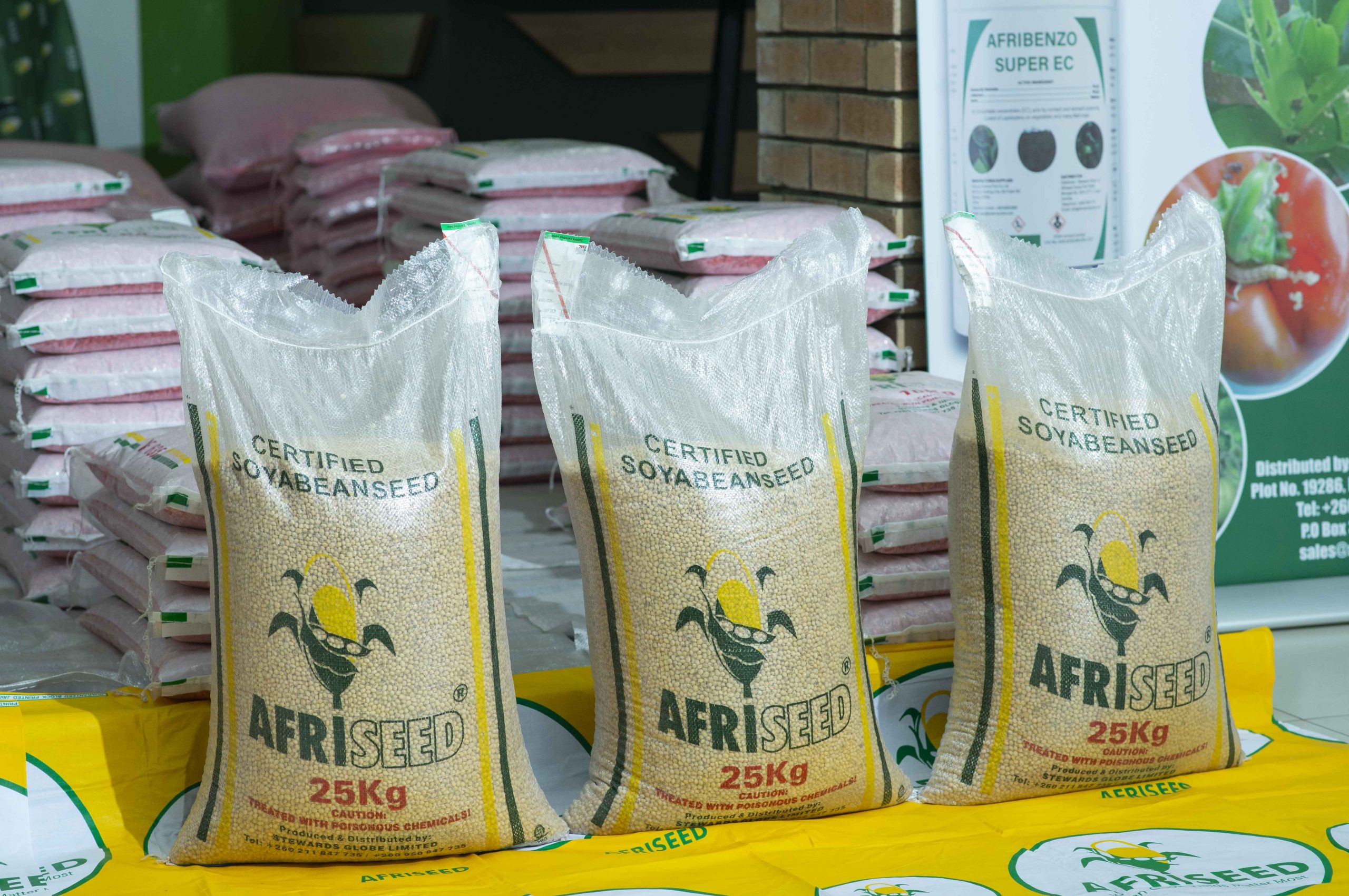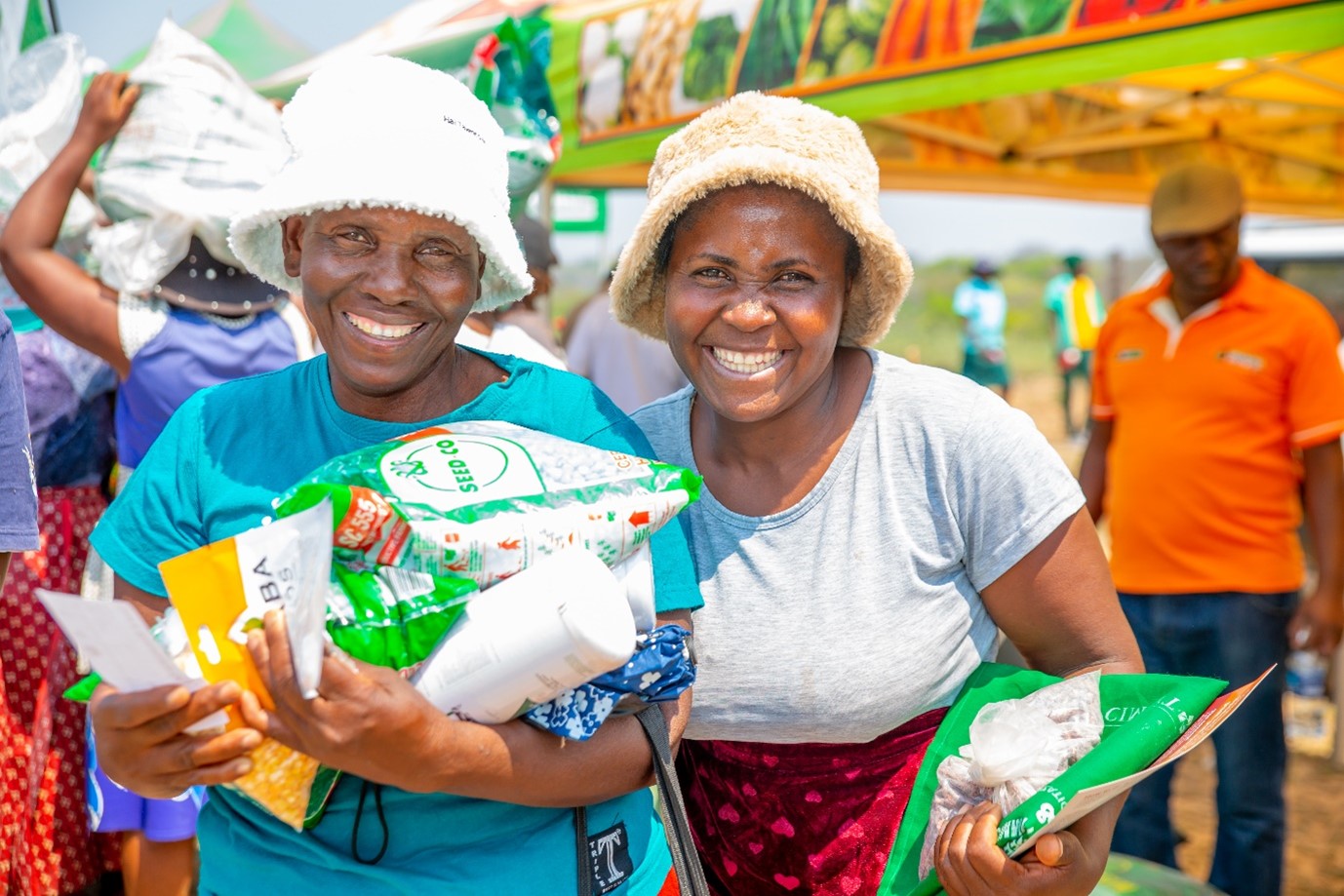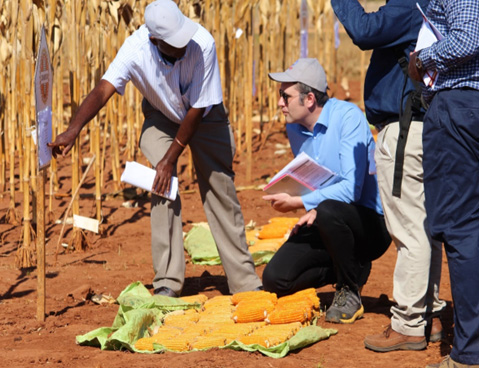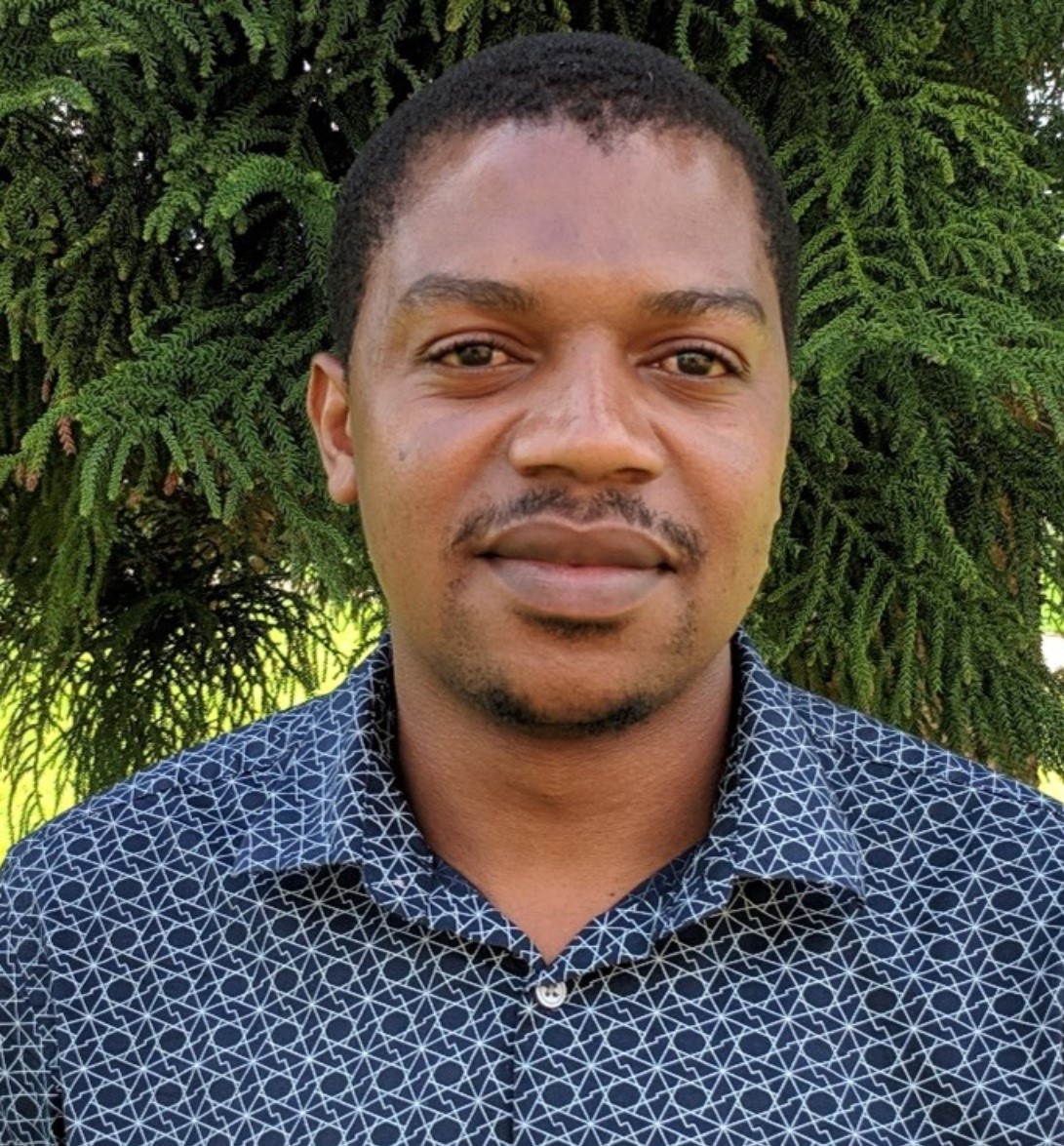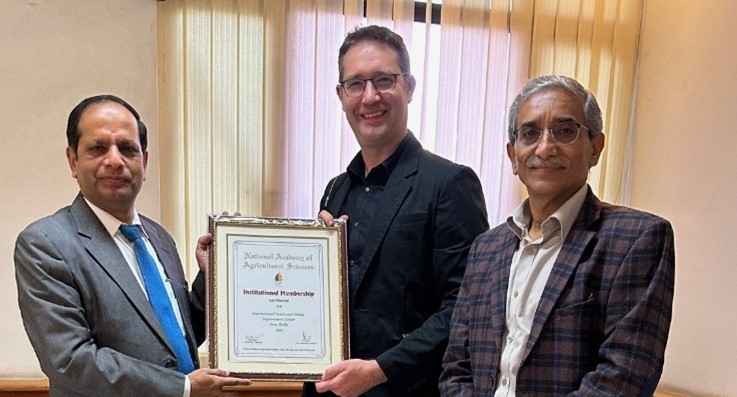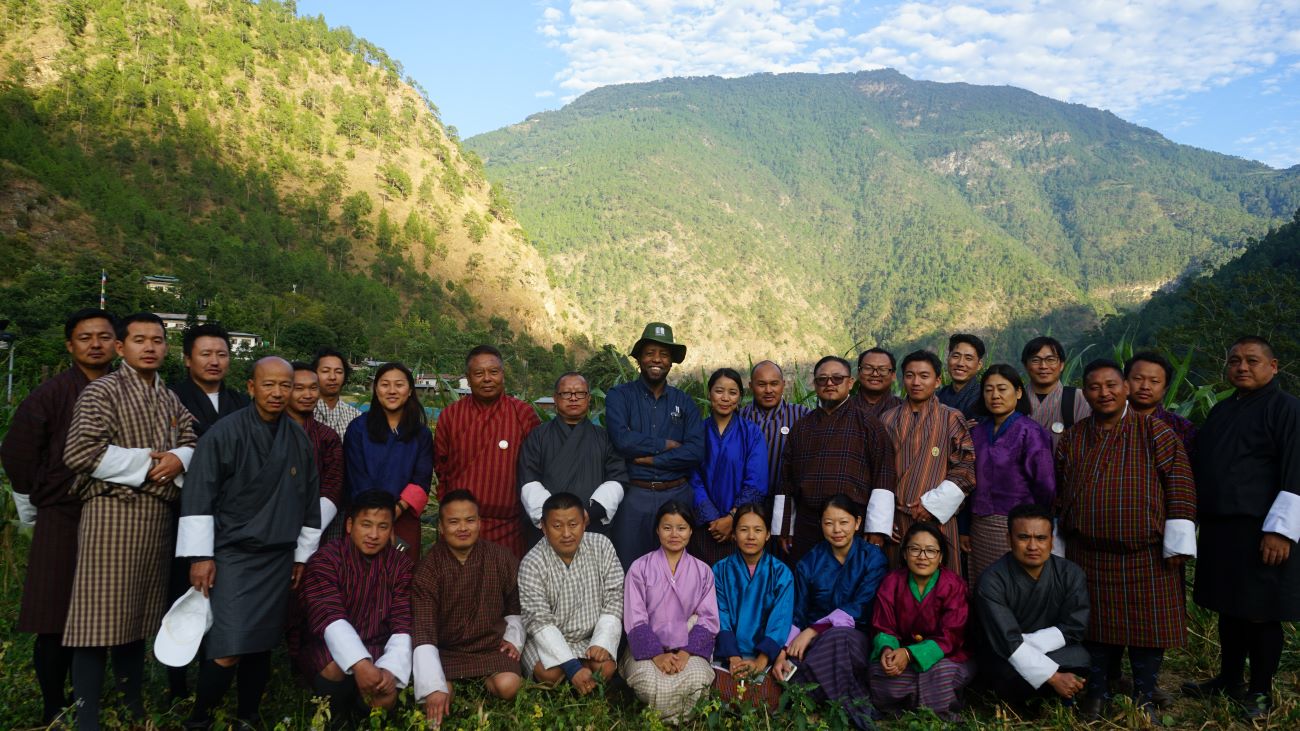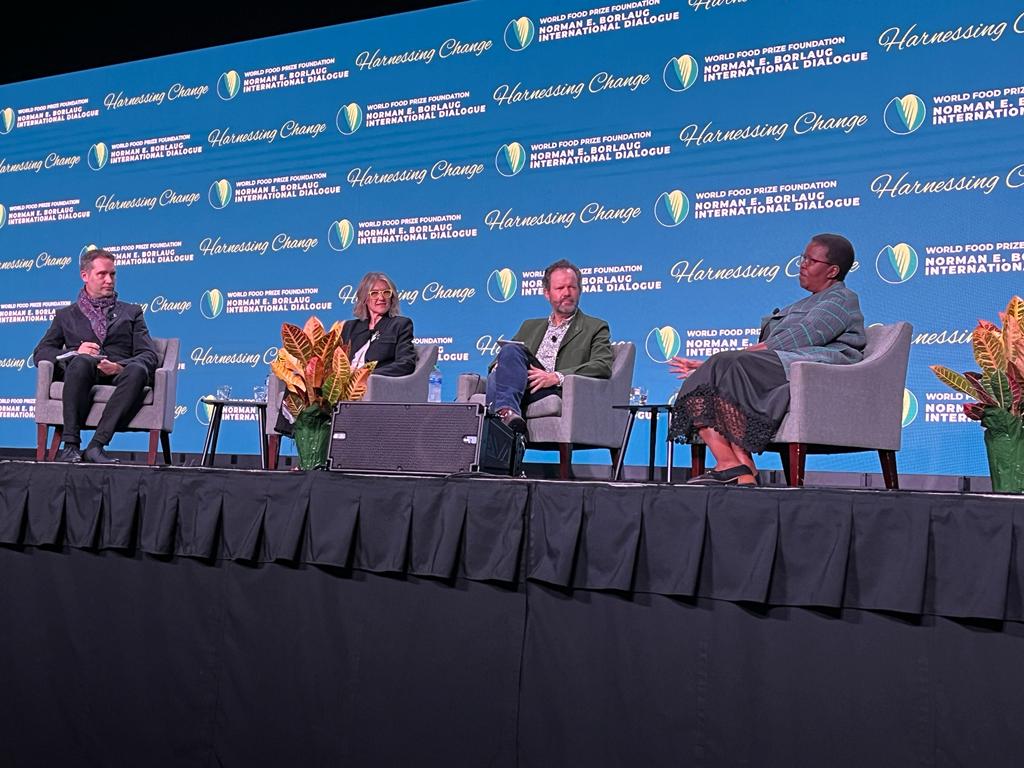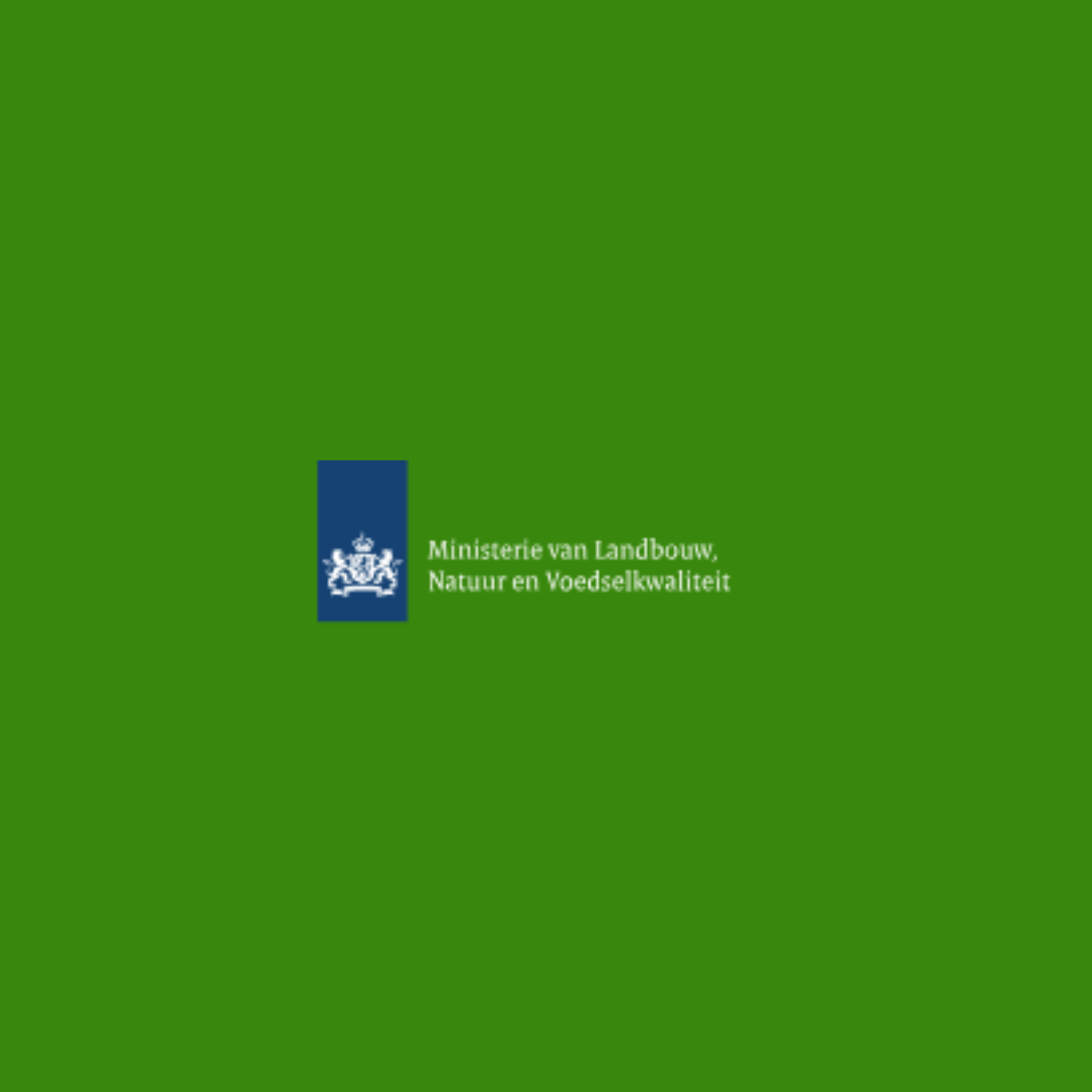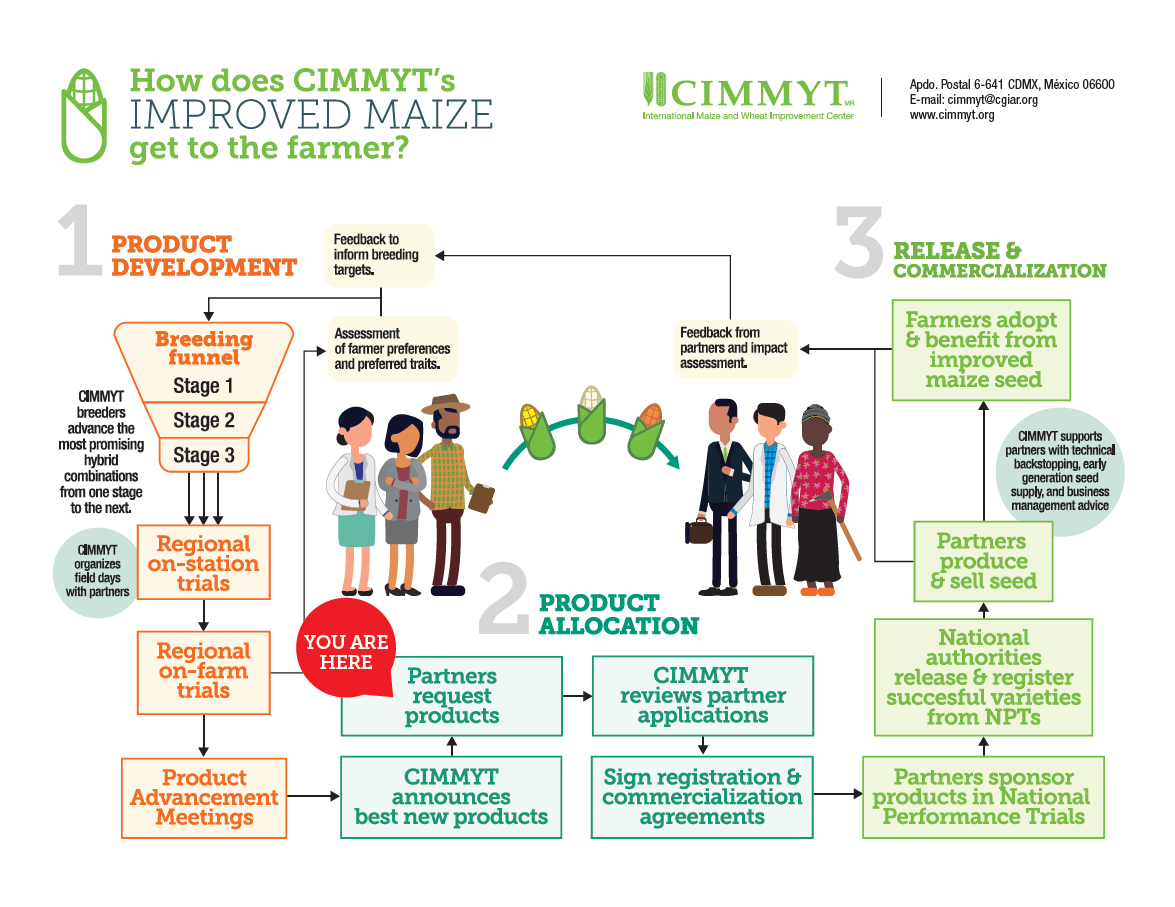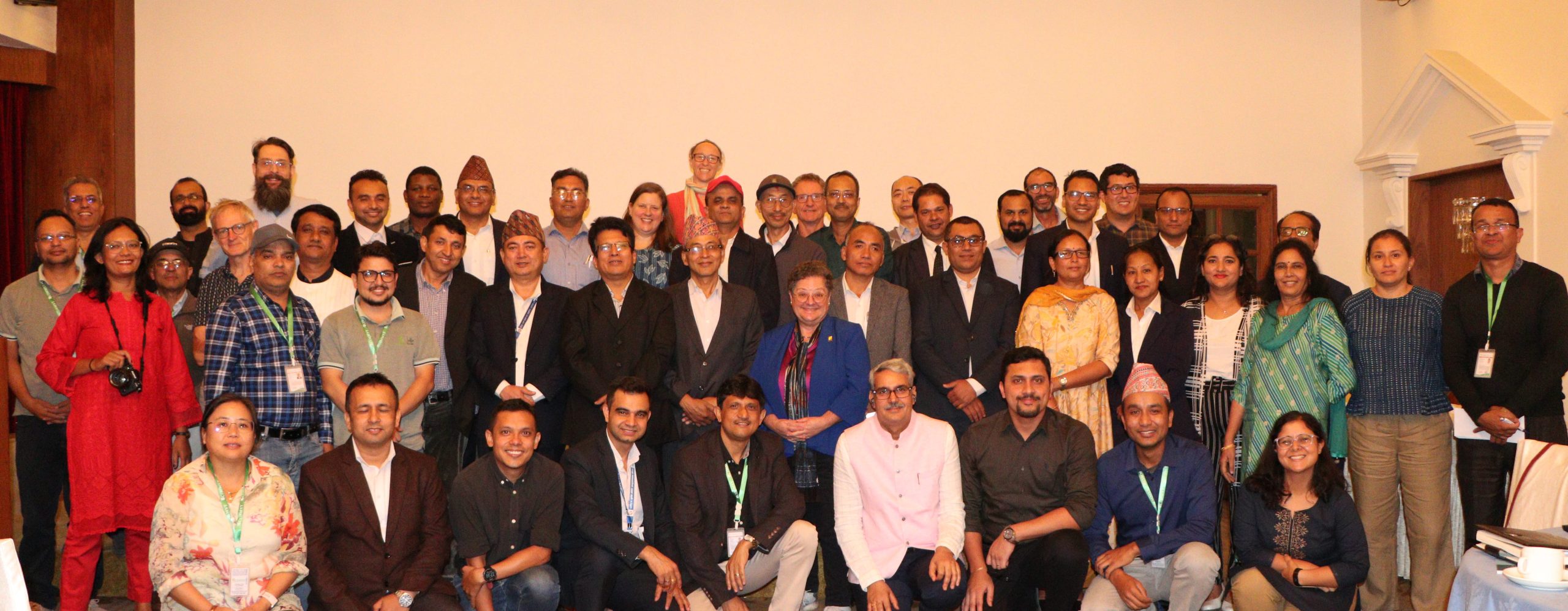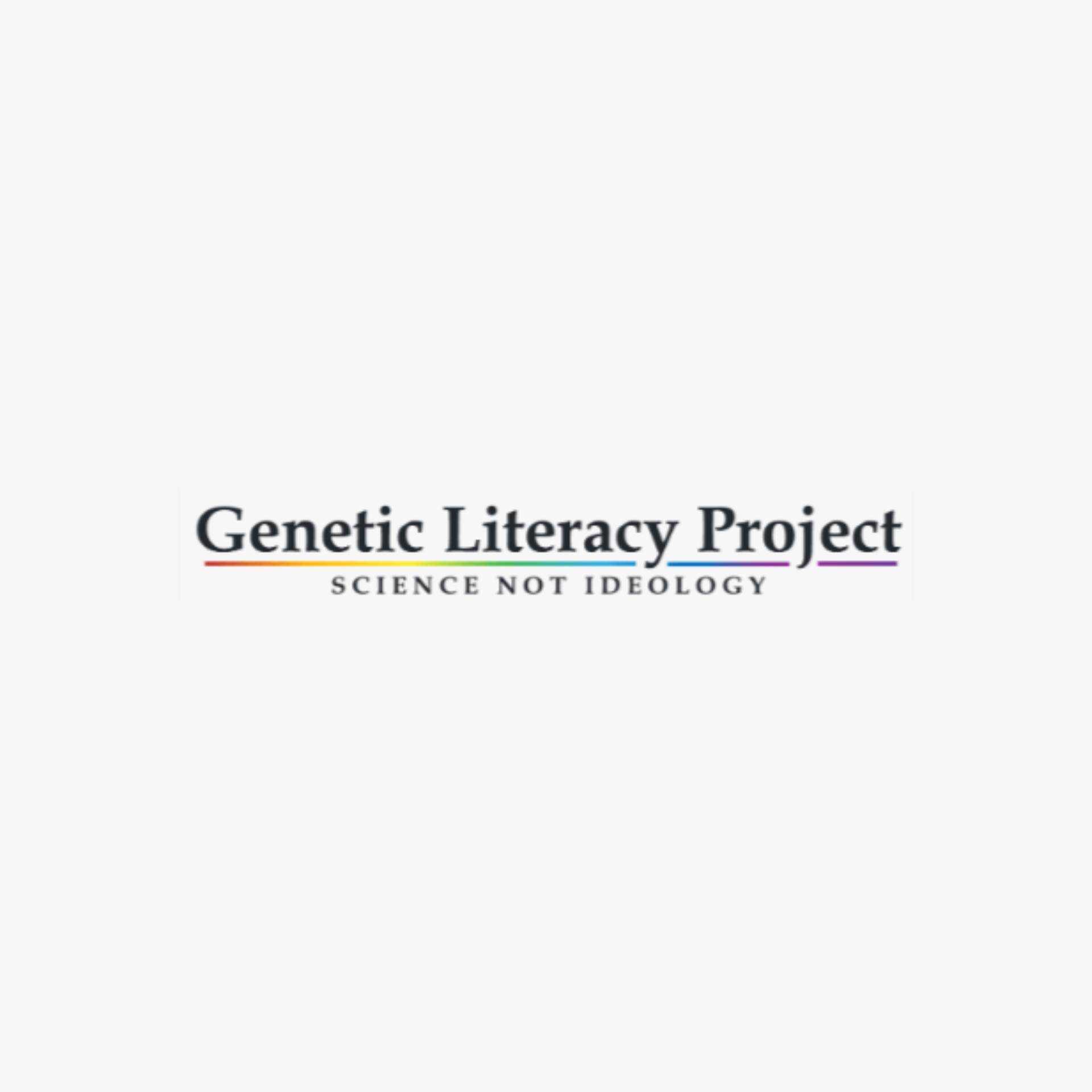Nutrition, health and food security
As staple foods, maize and wheat provide vital nutrients and health benefits, making up close to two-thirds of the world’s food energy intake, and contributing 55 to 70 percent of the total calories in the diets of people living in developing countries, according to the U.N. Food and Agriculture Organization. CIMMYT scientists tackle food insecurity through improved nutrient-rich, high-yielding varieties and sustainable agronomic practices, ensuring that those who most depend on agriculture have enough to make a living and feed their families. The U.N. projects that the global population will increase to more than 9 billion people by 2050, which means that the successes and failures of wheat and maize farmers will continue to have a crucial impact on food security. Findings by the Intergovernmental Panel on Climate Change, which show heat waves could occur more often and mean global surface temperatures could rise by up to 5 degrees Celsius throughout the century, indicate that increasing yield alone will be insufficient to meet future demand for food.
Achieving widespread food and nutritional security for the world’s poorest people is more complex than simply boosting production. Biofortification of maize and wheat helps increase the vitamins and minerals in these key crops. CIMMYT helps families grow and eat provitamin A enriched maize, zinc-enhanced maize and wheat varieties, and quality protein maize. CIMMYT also works on improving food health and safety, by reducing mycotoxin levels in the global food chain. Mycotoxins are produced by fungi that colonize in food crops, and cause health problems or even death in humans or animals. Worldwide, CIMMYT helps train food processors to reduce fungal contamination in maize, and promotes affordable technologies and training to detect mycotoxins and reduce exposure.
Afriseed: How improved legume seed can help transform Zambia’s agrifood systems
 Climate adaptation and mitigation
Climate adaptation and mitigation
Afriseed and AID-I are helping smallholder famers in Zambia transition to improved, high-yielding legumes.
Tela maize will boost food sufficiency, create wealth in Nigeria – Stakeholders
 Innovations
Innovations
Source: Daily Nigerian ()
CIMMYT’s involvement in the TELA Maize Project has been instrumental in the development of new drought-tolerant and pest-resistant maize varieties.
Transforming rural agriculture with improved seed and mechanization
 Capacity development
Capacity development
Attended by over 1,300 smallholder farmers, the fourth edition of the CIMMYT seed and mechanization fairs held in Mwenezi and Masvingo districts linked farmers with private sector companies.
Strengthening seed systems with Zamseed
 Capacity development
Capacity development
To improve food security in Zambia and Tanzania, CIMMYT and Zamseed join forces to strengthen maize resilience.
CIMMYT-BISA-ICAR partnership brings huge benefits in South Asia
 Climate adaptation and mitigation
Climate adaptation and mitigation
In 2011, CIMMYT and ICAR committed to agricultural development in South Asia with the creation of BISA. Since then, BISA has increased crop yields, developed hardy wheat varieties and championed environmental health.
Strengthening seed systems emphasized to enhance Bhutan’s seed and food security initiatives
 Capacity development
Capacity development
The mountainous Himalayan country is facing a reduction in the production of cereals, and an increase in productivity within the limited arable area is needed.
The Landscape of Agricultural Biotechnology
 Climate adaptation and mitigation
Climate adaptation and mitigation
Source: Technology Works (18 Dec 2023)
Kevin Pixley explores the impact of genetic engineering on resilient crop varieties
CIMMYT at the Borlaug Dialogue
 Capacity development
Capacity development
The 2023 Borlaug Dialogue showcased CIMMYT’s collaborations in Mozambique and innovative initiatives to address agricultural challenges in Southern Africa.
Cultivando un México Mejor: 100% sustainable barley supply
 Innovations
Innovations
Source: Ministerie van Landbouw, Natuur en Voedselkwaliteit (18 Dec 2023)
Three new CIMMYT maize hybrids available from Southern Africa Breeding Program
 Environmental health and biodiversity
Environmental health and biodiversity
CIMMYT announces three new, improved tropical maize hybrids.
Why we need to go beyond technology
 Nutrition, health and food security
Nutrition, health and food security
Source: Rural 21 (11 Dec 2023)
Sylvanus Odjo and Heike Ostermann highlight systemic scaling up of post-harvest technologies.
Charting a new course in agriculture: NARC-CIMMYT synergy in Nepal
 Innovations
Innovations
NARC and CIMMYT prioritize food security and technology adoption to transform agriculture in Nepal.
Nepal and CIMMYT forge decade-long partnership to advance agricultural science
 Capacity development
Capacity development
Source: Khabarhub (10 Dec 2023)
Nepal and CIMMYT sign 10-year pact to improve agriculture, focusing on improved production and markets.
Viewpoint: Hunger crisis — The number of countries unable to feed their populations has soared 400% since 2000. Here’s why crop biotechnology is a key solution
 Innovations
Innovations
Source: Genetic Literacy Project (11 Dec 2023)
